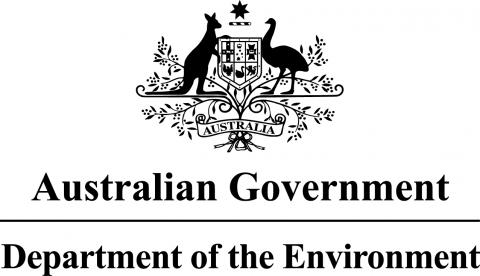Resources
The Newsport Daily
01 October 2013
The Australian Maritime Safety Authority (AMSA) is inviting public comment on the North-East Shipping Management Plan (NESMP), draft guidelines developed to ensure the protection of Australia’s north-east marine environment and improve shipping safety.
AMSA, the Australian government agency with prime responsibility for the safety of shipping in Australian waters and for the protection of the marine environment from ship-sourced pollution, drafted the plan in consultation with a range of government agencies. Read more

ABC News
12 November 2013
Scientists say the conditions forecast for this summer will give the Great Barrier Reef a chance to recover from recent natural disasters.
The weather bureau says sea surface temperatures will be close to normal over the next three months. Read more

ABC News
26 November 2013
The Great Barrier Reef Marine Park Authority is inviting discussion on how best to manage the reef.
The Australian government has commissioned strategic assessments from the Queensland Government and the GBRMPA on the marine areas and adjacent coastal zone. Read more

Courier Mail
10 August 2012
A SCIENTIFIC expedition will head into rugged north Queensland rainforests next month on a last-ditch mission to find frogs not seen for decades.
The frogs are thought to be extinct but there is some conjecture they may have survived in remote pockets. Read more
ABC News
26 August 2013
Three Indigenous councils on far north Queensland's western Cape York have joined forces to help protect endangered and vulnerable turtles.
The Northern Peninsula, Mapoon and Pormpuraaw councils will pool resources and expertise to better coordinate turtle conservation programs, including culling predators such as wild pigs, which they say eat up to 98 per cent of turtle eggs each season. Read more

The Conversation
01 November 2013
The Queensland and Australian government’s draft strategic assessment of the Great Barrier Reef World Heritage Area has been released today.
The strategic assessment was prompted by the 2012 UNESCO-IUCN reactive monitoring mission. The mission highlighted the possibility of adding the Great Barrier Reef to the List of World Heritage in Danger because the number and extent of port developments present a serious risk. Read more
Cairns Post
11 November 2013
A JAMES Cook University researcher is embarking on a world-first experiment to create drought-like conditions in a section of the Daintree to see how rainforests will respond to extended dry spells in the future.
Cairns-based rainforest ecologist Prof Susan Laurance and her team will build shelters under the canopy of half a hectare of the Daintree forest and attach gutters to capture and remove falling water. Read more

The Newsport Daily
07 October 2013
An environmental leap of faith has paid off for one of Australia’s rarest frogs, thanks to researchers at James Cook University in Cairns.
In early September, a team led by James Cook University doctors, Conrad Hoskin and Robert Puschendorf, performed the first successful frog translocation in Queensland’s history, giving the Armoured Mistfrog (Litoria lorica), pictured, a second chance at survival. Read more
Cairns Post
11 July 2014
TINY fish larvae on the Great Barrier Reef use their smell and hearing to find their ways home after weeks of drifting in the sea, researchers have found.
James Cook University scientists discovered the larvae used the two senses to find their way back to home reefs. Read more

The Conversation
25 February 2014
This summer we have seen one of the most dramatic animal die-offs ever recorded in Australia: at least 45,500 flying foxes dead on just one extremely hot day in southeast Queensland, according to our new research.
While flying foxes are often portrayed as noisy pets, they are protected native species, and declines in their populations have significant environmental ramifications as they spread seeds and pollinate native trees. Read more


